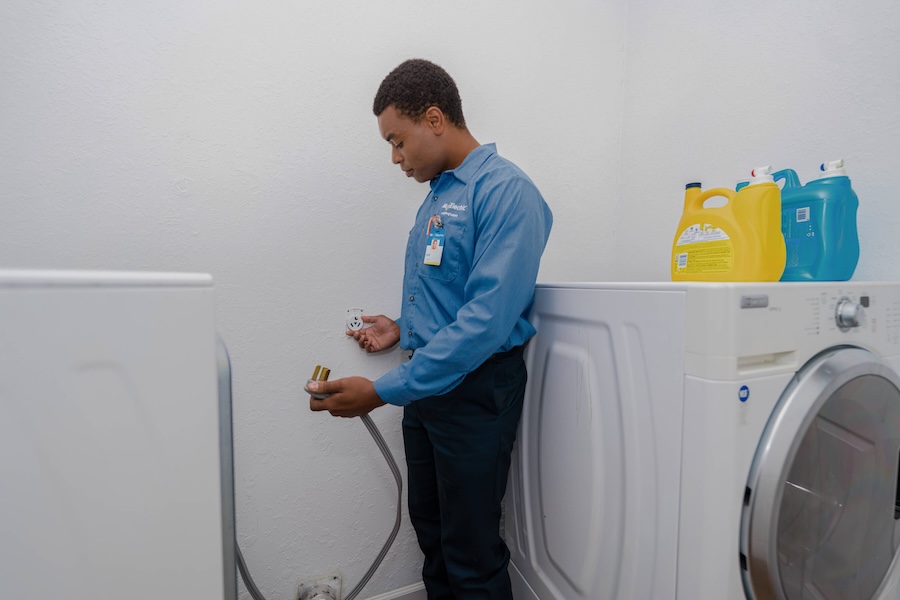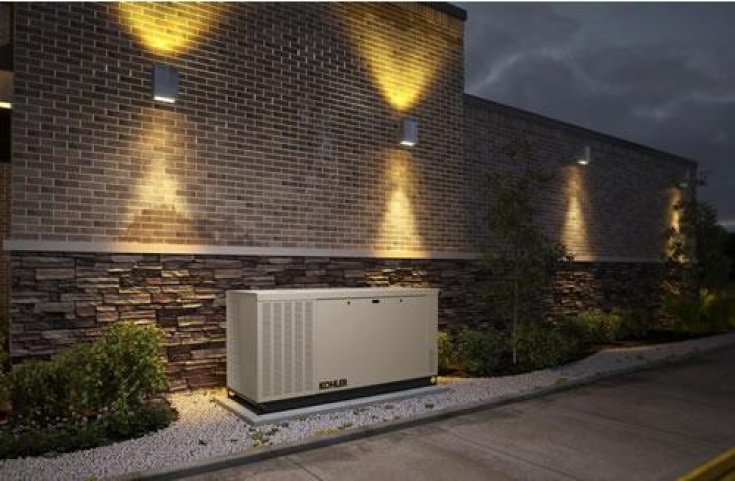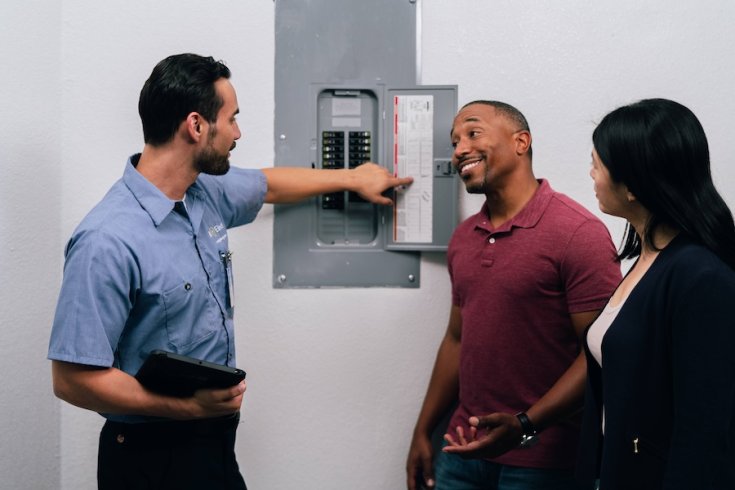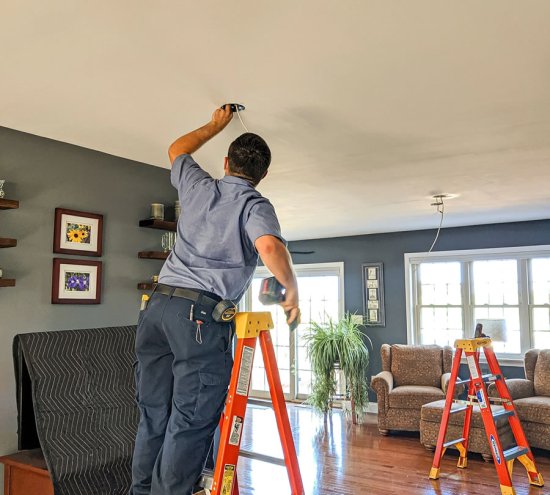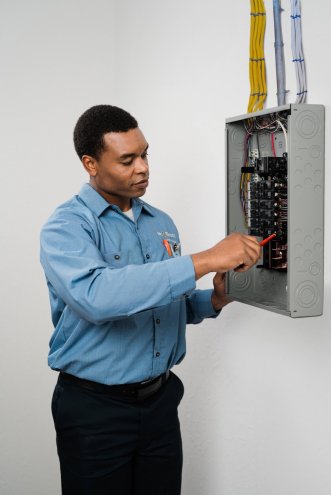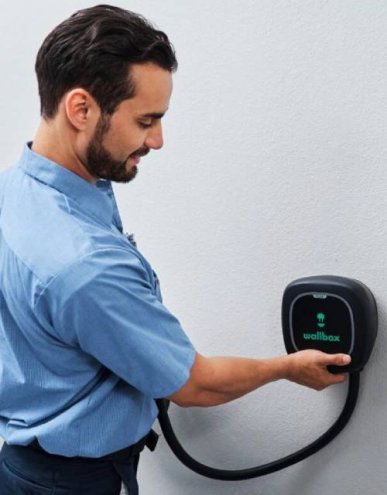Extend cords provide a convenient and inexpensive way to deliver electricity to unreachable areas. This perhaps explains why they are commonly used in many homes. However, improper use of extension cords has caused many fires in homes and even businesses. Here at Mr. Electric, we are committed to maintaining electrical safety by providing quality electrical services. In this article, we’ll provide you with tips on how you can safely use extension cords.
- Choose the Right Extension Cord
The three key aspects that matter when selecting an extension cord include length, gauge, and wattage capacity. Your intended use for the extension cord should inform your choice when you go shopping. If you have any challenges making the right choice, it is a good idea to consult with a professional electrical repair service.
- Inspect Cords for Damage Before Use
It is important to check the condition of the entire length of the extension cord before each use. Make sure you check for frayed wires, cracks in the insulation, exposed conductors, or any other damage that can compromise safety. If you notice any damage on the cord, replace it to prevent electrical hazards.
- Do Check the Wattage Rating On the Appliance or Tool That Will Use the Extension Cord
Each extension cord has wattage limits that should not be exceeded. If you plug in a device that exceeds the rating of the cord, there’s a risk of a fire or circuit breaker tripping. Always adhere to the recommended maximum current rating for your extension cord.
- Watch Where You Put The Cords
You should be very careful about where you run your extension cords to maintain optimal electrical safety. Routing an extension cord through a high-traffic area such as a walkway is inviting a tripping hazard. Make sure you route your extension cords safely to minimize tripping hazards.
- Use Only 3 Prong Extension Cords
A three-prong extension cord includes a ground wire that offers protection against electric shocks and appliance damage. For addition protection, it is advisable to use three-prong extension cords, if possible.
- Don’t Use Indoor Cords Outdoors
All extension cords are not created the same. Indoor cords should not be used to power devices outdoors for the simple reason that they are not designed for outdoor use. Instead, opt for extension cords rated for outdoor use. The primary difference between indoor and outdoor cords is the insulation. Outdoor cords have additional insulation around the wires to offer protection against moisture and environmental elements.
This is a safety practice that will not only reduce the risk of electrical hazards but also eliminate phantom or standby energy use. Leaving devices plugged into an extension cord increases the likelihood of overheating and electrical fires. Make it a habit to unplug unused devices for purposes of electrical safety.
- Keep Cords Away from Heat Sources
Do not use extensive cords near heat sources, such as space heaters, fireplaces, heat pumps, and radiant heaters. Excessive heat can damage the insulation and increase the likelihood of an electrical fire.
- Don’t Plug One Extension Cord into Another
This is one of the common mistakes homeowners make when they’re trying to get a longer extension cord for specific uses. Plugging one extension cord into another one is a risky affair because it can cause an electrical fire. Another issue you’re likely to experience when you string two extension cords together is a voltage drop.
If you need a qualified, experienced, and insured electrician in Salt Lake, UT to handle electrical work in your home, reach out to Mr. Electric.


